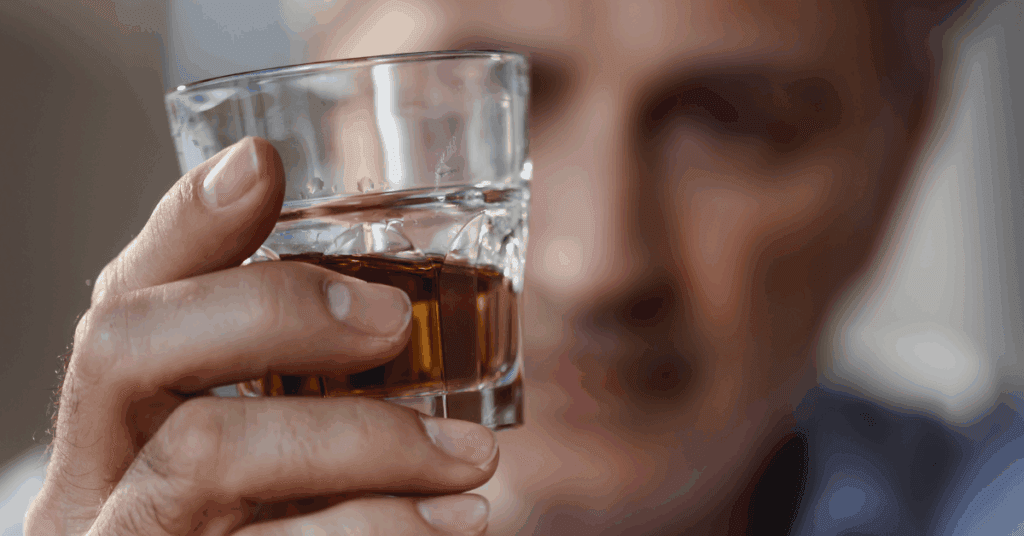What alcohol detox actually means
Detoxing from alcohol isn’t a single event. It’s a process. The body doesn’t just remove the alcohol from your bloodstream and call it a day. It tries to recalibrate after being used to constant interference. This is where the trouble usually starts. When you stop drinking after a long period of regular use, the body goes through a kind of shock. It’s not the absence of alcohol that causes problems, but how dependent your body and brain have become on it to function ‘normally’.

Detox is the first step that begins when you stop drinking. It’s the adjustment phase. Your body starts flushing out alcohol and your brain begins recalibrating. But this isn’t just a matter of willpower. The longer and heavier the drinking, the more intense and dangerous this adjustment process can be. That’s why detox isn’t just stopping alcohol, it’s preparing for what comes next.
Why detox is not just about quitting cold turkey
People often think you can just quit and power through. That works for caffeine. Not alcohol. There’s a lot more going on underneath the surface. Quitting cold turkey without preparation can lead to dangerous medical problems. The nervous system, after months or years of dampening by alcohol, suddenly starts firing on all cylinders. That spike can cause heart palpitations, blood pressure changes, and more.
Detox needs support because your system is used to operating with alcohol in it. When that alcohol is gone, the brain’s natural chemicals surge or crash. That chemical chaos is what causes withdrawal symptoms. And those symptoms can be more than just discomfort – they can be life-threatening. People who go through it alone might not realise when they’ve crossed into dangerous territory until it’s too late.
Physical reactions your body goes through
The physical part of alcohol withdrawal is where the danger lies. For some, it starts with shaking hands, headaches, and nausea. For others, it can become much more intense – elevated heart rate, sweating, vomiting, and even hallucinations. These symptoms tend to peak around the second or third day and can last for a week. But that’s only part of the picture.
There’s a condition known as delirium tremens (DTs) that can develop in people with severe alcohol dependency. This is a full-body and mind disturbance that can include seizures, confusion, and rapid heart rate. It needs medical intervention. The body isn’t used to functioning without alcohol and sends all kinds of distress signals. That’s why detoxing should be done with supervision, especially if you’ve been drinking heavily for years. The body needs to be watched closely and supported through the transition.
Mental health issues that show up during detox
While the physical part grabs most of the attention, mental health symptoms during detox can be just as overwhelming. Anxiety, irritability, restlessness, and insomnia are common. In more severe cases, depression or panic attacks can occur. Alcohol may have been used to self-medicate mental health conditions, so when it’s gone, those symptoms often come back – and sometimes more strongly.
What also tends to happen is a flood of emotion. People may feel guilty, ashamed, or overwhelmed without the numbing effect of alcohol. These aren’t minor side effects. They can push someone back to drinking just to find relief. That’s why mental health support during detox is just as critical as managing the physical symptoms. Without proper handling, the mental load becomes a massive barrier to moving forward.
The risk of seizures and how they start
Seizures are among the most serious risks when detoxing from alcohol. They can happen within the first 24 to 72 hours after stopping alcohol and often without warning. The brain’s electrical activity becomes unstable after alcohol is suddenly removed, especially when a person has been drinking heavily for a long time. This is what leads to alcohol withdrawal seizures.
These seizures don’t look like the ones you see in movies. Some are full convulsions, while others may be smaller and go unnoticed. But any seizure is dangerous – it can cause falls, injuries, or lead to more severe complications like status epilepticus, a medical emergency. This is not the kind of thing you try to ‘tough out’. Seizures during alcohol withdrawal are a red flag that medical help is needed.
Why home detox is not always a smart idea
The idea of detoxing at home might sound appealing. You’re in your own bed, in a familiar place. But comfort doesn’t always equal safety. Detox can go from mild to serious very quickly, and at home, there’s often no one to recognise when that’s happening. There are no vital sign checks, no access to medication, and no trained professionals to respond if something goes wrong.
The temptation to stop detox and start drinking again is also higher at home. Alcohol is often just a few steps away. That makes relapse more likely, especially during the rough patches. A safe detox means removing access to alcohol and having someone who knows what they’re doing nearby. Home might feel like the right place, but it’s not always the safest one when alcohol is involved.
What happens in a structured rehab setting
A structured detox environment is built to manage the risks. Medical staff check your blood pressure, heart rate, and temperature throughout the day. You might be given medication to ease symptoms, stabilise your nervous system, and prevent seizures. This isn’t just comfort – it’s risk management. The goal is to make the process safer and increase the chance that you’ll stick with it.
But rehab doesn’t only offer medical support. There are trained counsellors and mental health professionals ready to step in when the psychological strain hits. Some places offer nutrition plans, hydration management, and quiet spaces to rest. Others provide early therapy or support group access. What matters is that it’s not just about surviving detox. It’s about setting the stage for staying sober afterwards.
How long detox usually lasts
Detox doesn’t last forever, but it’s not over in a day. For most people, symptoms start within 6 to 12 hours after the last drink. They usually peak by day two or three and taper off after about a week. But that’s just the surface. Some symptoms, especially psychological ones, can drag on for weeks. This is known as post-acute withdrawal.
Sleep issues, low energy, mood swings, and anxiety can linger. It’s important to understand that detox is the beginning, not the end. It clears the body, but it doesn’t fix the brain’s chemistry or rebuild healthy habits. That takes time and structure. Going in with a clear idea of what to expect helps people avoid discouragement and stay committed after the worst has passed.
Food and fluids during withdrawal
Nutrition during detox often gets overlooked, but it matters. Alcohol depletes the body of key vitamins and minerals. Many people going through withdrawal are dehydrated, lacking B vitamins, magnesium, and potassium. This makes symptoms worse and recovery slower. Replenishing fluids and nutrients isn’t just about feeling better – it’s about helping the body recover safely.
Food might not seem appealing at the start, especially with nausea or stomach cramps. But simple meals with fruit, broth, and carbohydrates can help balance blood sugar and keep the digestive system working. Fluids are critical. Water, herbal teas, or electrolyte drinks make a big difference. When your body is already under stress, giving it the right fuel can improve both the physical and mental aspects of detox.
What comes after detox
Detox clears alcohol from your system, but that’s just the first part. It doesn’t fix what made you drink in the first place or teach you how to stay sober. After detox, people need support to keep going. That might mean entering a rehabilitation programme, attending support groups, or working with a counsellor. Some need time away from daily triggers. Others need a complete reset of how they handle stress, relationships, and day-to-day responsibilities.
What’s important is having a plan. Stopping drinking is a huge step, but it’s only one part of the process. The work after detox is about building a life that doesn’t depend on alcohol. That’s not always easy, and it rarely happens alone. Having people around who understand what you’ve been through and know how to help can make all the difference.

